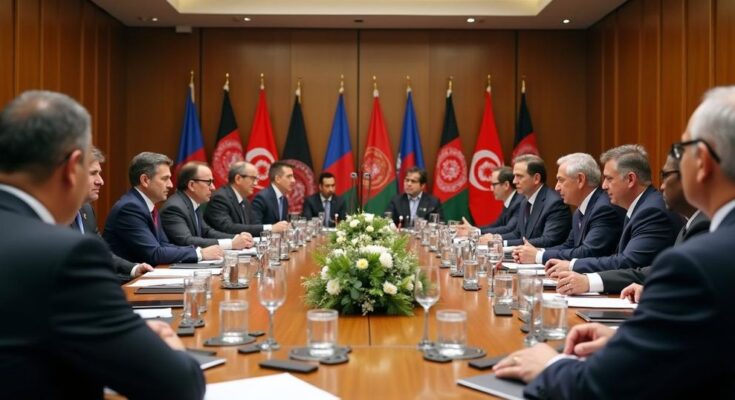The United Nations Human Rights Council’s recent resolution on Afghanistan extended the mandate for the UN Special Rapporteur but failed to create an independent international accountability mechanism needed to address growing human rights violations, particularly against women and girls under Taliban rule. Amnesty International’s Smriti Singh criticized the resolution for falling short in delivering sufficient justice and support for Afghan citizens, emphasizing the urgent need for a comprehensive response to the ongoing crisis.
The recent resolution passed at the United Nations Human Rights Council (HRC) regarding Afghanistan leaves much to be desired, falling short of a robust response to the ongoing human rights crisis. While the resolution successfully extends the mandate of the UN Special Rapporteur on Afghanistan, it disappointingly neglects to establish an independent international accountability mechanism, a crucial tool needed to address the rampant violations afflicting the nation. Smriti Singh, the Regional Director for South Asia at Amnesty International, voiced her concerns about the resolution’s inadequacies. She emphasized, “The HRC has again shied away from sufficiently supporting justice for the people of Afghanistan who have placed their hopes in the international community.” This statement underscores that, despite the recognition of the need to investigate crimes and preserve evidence of human rights abuses, actionable mechanisms still remain elusive. The HRC had another opportunity to pave the way for accountability, justice, and deter the Taliban’s ongoing repression of Afghan citizens, particularly women and girls. Singh pointed out the critical need for an independent accountability mechanism that can effectively identify perpetrators and investigate severe human rights violations, something that has been remarkably overlooked. “Shortcomings in this resolution also lets down brave activists, particularly women human rights defenders, journalists and others who pursue their work in the face of repression at a huge personal risk,” Singh added, illustrating the desperate circumstances faced by those championing human rights in Afghanistan. However, amidst the shortcomings, the resolution did somewhat acknowledge principles stemming from the UN Office of the High Commissioner on Human Rights (OHCHR), which previously conducted a stocktaking on accountability options. This stocktaking was a hesitant yet pivotal step as it represented the first recent discussions within the UN addressing serious accountability deficits in Afghanistan. While it may seem that the resolution has not fully grasped the gravity of the situation, the call for a comprehensive approach is a glimmer of hope. “It is imperative that UN member states build on this… and move towards establishing an independent international accountability mechanism at the earliest opportunity,” Singh concluded, urging for immediate action in the face of escalating crises in Afghanistan.
The backdrop of the resolution’s discussion stems from a previous mandate placed on the UN Human Rights Council to address the growing demands from civil society and survivors for enhanced accountability concerning crimes against humanity in Afghanistan. The OHCHR stocktaking report, the first of its kind in recent years, aimed to confront accountability issues across the spectrum of the conflict’s duration and the culpability of all involved parties. However, many view these initial efforts as insufficient, highlighting the continuous need for stronger mechanisms to protect human rights and ensure justice for past and ongoing violations.
The HRC’s recent resolution on Afghanistan has demonstrated a notable hesitance to further the cause of justice and accountability amidst ongoing human rights violations. The lack of an independent mechanism to investigate and preserve evidence of crimes continues to hinder the hope for justice among the Afghan people. Activists and defenders pressing for human rights intensify their call for an urgent response from the international community, urging for decisive action, recognizing the imperative to protect those who bravely stand for justice even amidst the looming threats they face.
Original Source: www.amnesty.org



